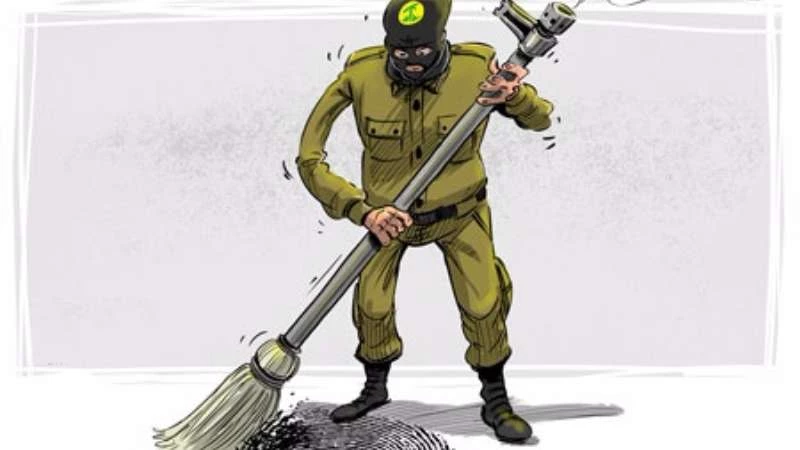Ali al-Ameen, in his article, explains how killing Hezbollah’s leader in Damascus dealt another blow to the Lebanese faction, showing that its involvement in Syria is exposing its dilemma.
Al-Ameen says despite the good American-Iranian relationship that has started to develop recently, the US Treasury is sanctioning the Iran-affiliated Hezbollah, “as the American administration, led by Obama, is taking steady steps in fostering its relations with Iran, the US Treasury continues with the same pace in imposing and tightening sanctions on Hezbollah.”
Hezbollah was recently surprised because the sanctions were not limited to closing the foreign currency accounts of his loyalists, but also they go beyond that to control Lebanese Lira accounts and deposits.
To Hezbollah’s shock, even the Central Bank of Lebanon was not willing to ignore implementing the sanctions. This is because the Lebanese banks fear for the Lebanese bank system being, “the only sector which represents the last fortress for the Lebanese economy and financial policy.”
The author adds that the assassination of Badreddine happened shortly after Akbar Velayati visited Beirut and met with Hassan Nassrallah. Al-Ameen explains that the goal behind Velayati’s visit was to assure Hezbollah about the consistency of Iran’s stand in supporting Hezbollah. The visit also aimed to stress that the fighting will continue in Syria in support of Assad.
Hezbollah first balmed Isreal for the assasination then backed up on its argument to accuse Takfiri groups of that.
However, all the details of the operation, the author thinks, indicate American or Israeli involvement.
The author then points out that Badreddine was not the first internationally-prosecuted leader, to be assassinated. He mentions Hezbollah’s Imad Mughniyah as an example. He talks, as well, about Badreddine’s accusation of being involved in the assassination of Lebanon’s ex-prime minister Rafic Hariri.
Al-Ameen touches upon the past of Badreddine mentioning his kinship with Mughniyah and and how they both started their military and security activities together. They both were assigned with establishing the military and security force of Hezbollah.
Al-Ameen then excludes the hypothesis that Badreddine’s assassination was done by Iran. We can say, however, that Badreddine’s shift to fight in Syria has put him in a place where local, regional, and international powers interact.
The author explains that Israel assassinated Badreddine to drag Hezbollah into a confrontation, while trying to send a message to Hezbollah.
The author then deducts that the fact that Hezbollah did not accuse Israel proves that it is trying to avoid any confrontation.
Al-Ameen warned that Hezbollah’s inaction towards killing Badreddine would expedite the assassination of many other Hezbollah figures.
Ali Al-Ameen in Al-Arab



التعليقات (0)